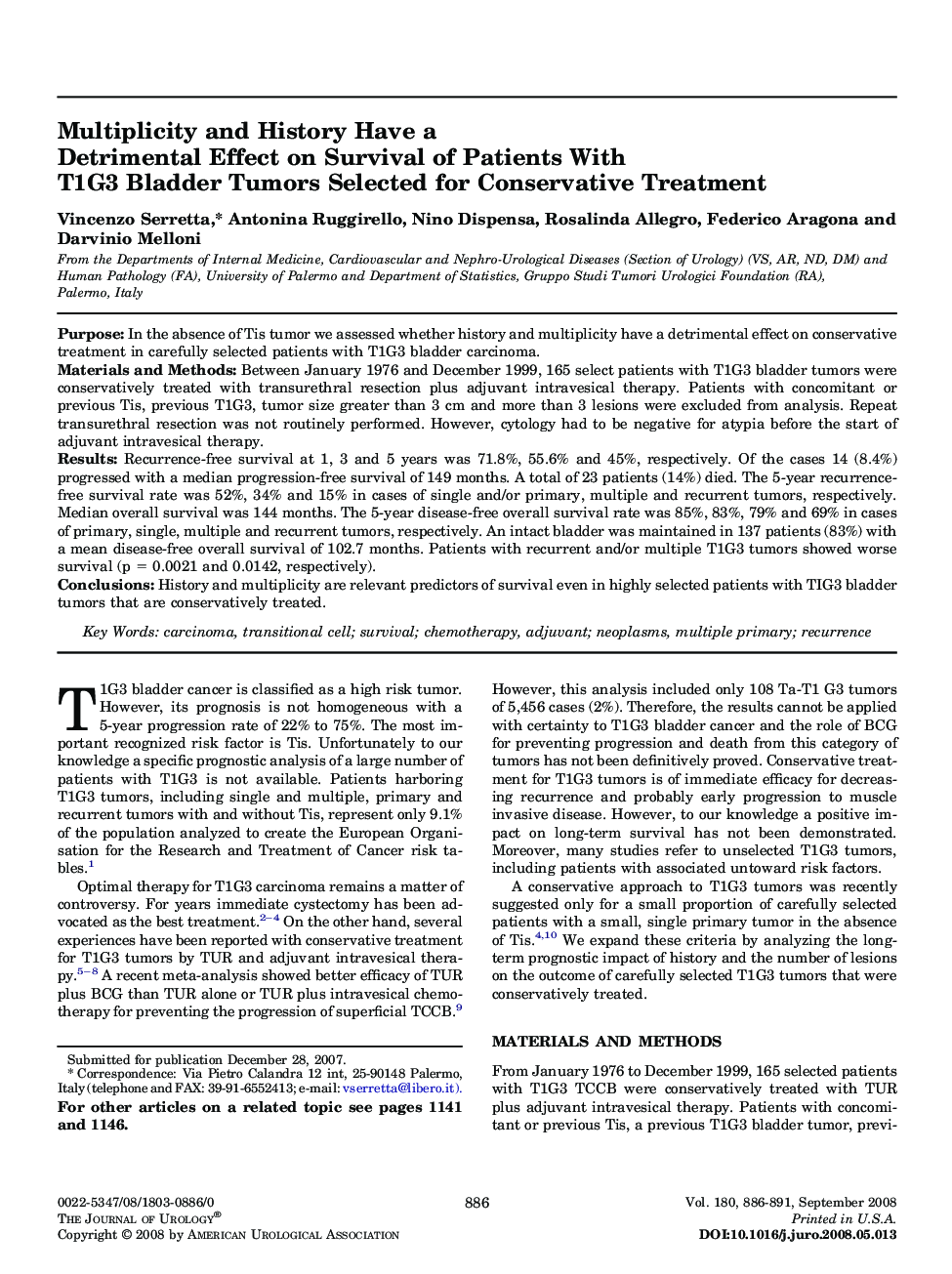| Article ID | Journal | Published Year | Pages | File Type |
|---|---|---|---|---|
| 3872803 | The Journal of Urology | 2008 | 6 Pages |
PurposeIn the absence of Tis tumor we assessed whether history and multiplicity have a detrimental effect on conservative treatment in carefully selected patients with T1G3 bladder carcinoma.Materials and MethodsBetween January 1976 and December 1999, 165 select patients with T1G3 bladder tumors were conservatively treated with transurethral resection plus adjuvant intravesical therapy. Patients with concomitant or previous Tis, previous T1G3, tumor size greater than 3 cm and more than 3 lesions were excluded from analysis. Repeat transurethral resection was not routinely performed. However, cytology had to be negative for atypia before the start of adjuvant intravesical therapy.ResultsRecurrence-free survival at 1, 3 and 5 years was 71.8%, 55.6% and 45%, respectively. Of the cases 14 (8.4%) progressed with a median progression-free survival of 149 months. A total of 23 patients (14%) died. The 5-year recurrence-free survival rate was 52%, 34% and 15% in cases of single and/or primary, multiple and recurrent tumors, respectively. Median overall survival was 144 months. The 5-year disease-free overall survival rate was 85%, 83%, 79% and 69% in cases of primary, single, multiple and recurrent tumors, respectively. An intact bladder was maintained in 137 patients (83%) with a mean disease-free overall survival of 102.7 months. Patients with recurrent and/or multiple T1G3 tumors showed worse survival (p = 0.0021 and 0.0142, respectively).ConclusionsHistory and multiplicity are relevant predictors of survival even in highly selected patients with TIG3 bladder tumors that are conservatively treated.
